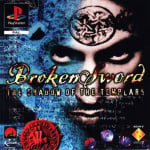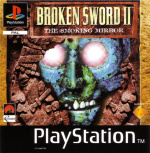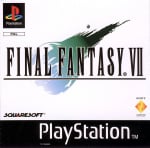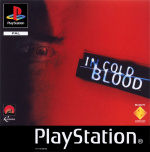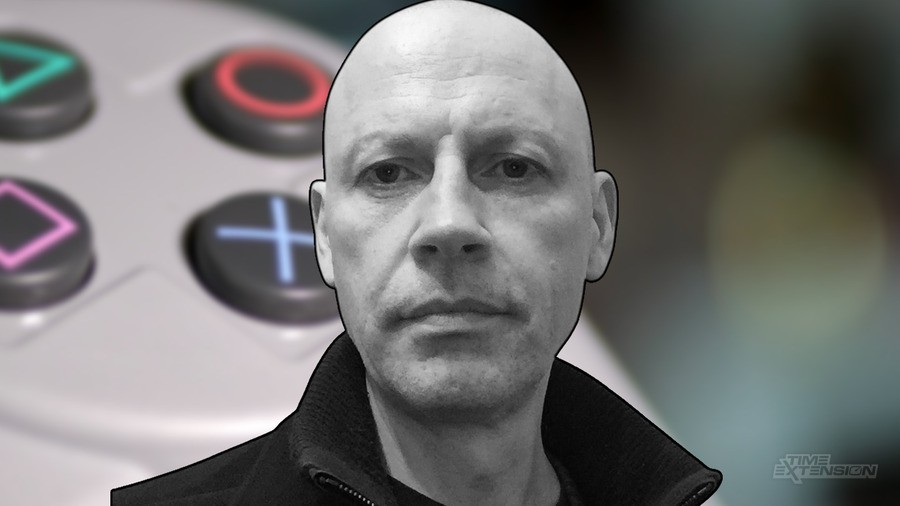
Martin Alltimes isn't a name that many gamers will necessarily be familiar with, but he had a front-row seat to the inner workings of Sony's European gaming division during one of the most exciting periods in its history.
Joining Sony Electronic Publishing in 1994, he was among the first people in the UK to know about the Sony PlayStation and played an important role in attracting developers to create projects for Sony's new 3D-based system.
Acting in the capacity of a producer, he eventually went on to amass an eclectic list of credits over the 7 years he was with the company, overseeing the development of a range of games including Broken Sword 1 & 2, In Cold Blood, Bushido Blade, and Spice World. Arguably, one of his most fascinating jobs, however, was helping to put together the European localization of Final Fantasy VII — an endeavour that he told us left him with "the face of a man who was about to die" due to the ridiculously short timeframe he was given to hire the right people and test the builds.
Last year, we interviewed Alltimes fairly briefly to find out more about his involvement with Spiral Saga, Software Creations' cancelled Playstation follow-up to Equinox and Solstice, and have always wanted to dig more into his fascinating career. So recently, we arranged a call with the developer to go over some of the incredible memories he has working at Sony during the '90s and early 2000s. You can read a transcript of that conversation below (edited for length):
Time Extension: To start, it'd be interesting to hear a little more about how you first got the job at Sony. You've previously told us that you got the job through Phil Harrison. Could you tell us about how the two of you met?
Alltimes: Sure, so when I left university, I was a trainee manager at Virgin's Game Center on Oxford Street. I think it was the largest game center in the UK. Or at least it was at the time.
Phil was working for a publisher called Mindscape. He was head of development for that. And there was a game called Wing Commander that Mindscape was doing, and we were doing a promotion for it. At the time, I was very big on set-piece promotions. And in those days, because we were such a big store, they actually flew people over from Origin Systems. Like the top people. I mean I actually had Richard Garriott who was the founder of Origin Systems in that store. And he was doing the demos of Wing Commander. Can you imagine that? So we had Richard Garriott. We had the CEO and the head of marketing. And Phil Harrison turned up as well.
Anyway, Phil must have been impressed by the effort we put into making sure that there was an event around their game because he took me to lunch. And I think at the time he was curious just to understand a little bit about me and I got the feeling that he might be interested in hiring me. But Mindscape was based in Brighton and I was based in London, and I didn't really feel like pursuing that opportunity at the time.
So what happened was, I think about 18 months later, maybe even less than that, Phil was made director of development at Sony Electronic Publishing Limited, which is the predecessor of Sony Computer Entertainment. He was only 21, and this guy was made director of development of this new organization. And, at that point, I was working in the head office for Virgin and I kind of thought I'd kind of reached the top of the ladder and I didn't think there was anywhere else to go. So I actually wrote a letter to Phil and I hand delivered it to their offices in Soho Square in London, and about six weeks later Phil's secretary reached out to me and offered me an interview. That's how I got the job.
Time Extension: What were your first experiences of working for Sony like? Did you know that they were planning to make the move into video game hardware?
Alltimes: When I walked through the door, I knew nothing about PlayStation. I just had a hunch because they were a major hardware company that it would be an interesting job. Phil showed me the original prototype or one of the early prototypes of the PlayStation. And it was just mind-blowing at the time.
I mean, Jurassic Park had come out the previous year and I'm sure that's what inspired the famous dinosaur demo. But to see graphics at that level of fidelity running in real-time was absolutely extraordinary and I remember you know one of those kind of moments that you have where you kind of just feel like the walls are falling away because you can't actually believe how lucky you are in what you're actually seeing.
So I joined and at the time, I was employee number 23. A couple of other people joined around the same time as me. And in the early days, everyone was finding their certain thing. So I was a producer, but also we had to sell PlayStations too. So we'd go to events like CES (the Consumer Electronics Show), and we would have to evangelize about PlayStation at the same time we were trying to find developers to work on PlayStation. And the thing is, what's really hard, again, for people to understand, and I think it's kind of useful to get across, is so many people were skeptical about PlayStation.
People were like 'Who are these people?' They had no real legacy in video games. And they were doing cartridge products, but the cartridge products they were doing they had a reputation for pretty much-taking anything.
People were like 'Who are these people?' They had no real legacy in video games. And they were doing cartridge products, but the cartridge products they were doing they had a reputation for pretty much-taking anything. And that was explained to me as they saw that as the price of entry and that was them learning about video games. They didn't mind investing all these tens of millions in those days just to understand the business and find the right people.
And one story — I don't know if a lot of people would know this — but one of the guys who joined Sony as a senior producer was a guy called John Roberts, and he came from Virgin. And one of John Roberts' claims to fame was he knew Peter Molyneux. He'd actually been a tester on the original Populous. So, you know, Phil's asking us to come and find people to help develop the games. You know, we've gone out there and no one's really biting and they're all very skeptical of PlayStation. So John rings up Peter Molyneux and Peter Molyneux just pitches John what is essentially Magic Carpet, Theme Park, Dungeon Keeper, and the superhero game that never came out, The Indestructibles.
So, you know, there was a conversation between Phil and Peter about buying those games. And it got to a point where the money Pete was asking for, as explained to me by Ian Hetherington, was enough that you might as well just buy the company. And so there was actually an offer to buy the company. Now what you also probably may not know is previously prior to buying Psygnosis, Sony had attempted to buy Bullfrog and they'd been turned down. And that's probably the reason why on the second attempt, EA ended up buying Bullfrog. Because it was serious, serious money in those days. I think Psygnosis was bought for 20 million, and that was in 1994. I think they offered something like 40 million, which would have probably been the biggest acquisition at that time.
Time Extension: What were some of the early titles you managed to sign for PlayStation?
Alltimes: So the first game I signed was Spiral Saga, and actually, the reason why I did that is I think the Americans (Sony Electronic Publishing), had released Solstice and Equinox, which were the two Software Creations' games. And they'd asked Phil to go and approach Software Creations. I'd never heard of Software Creations before. And so that was how we got that.
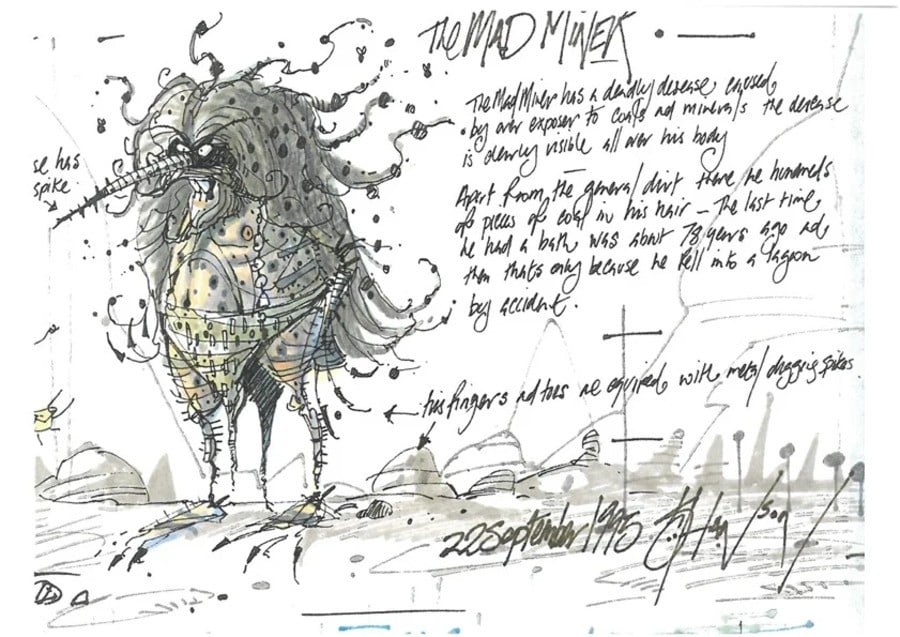
But you know, we were like talking with second-division developers. So the other game that was signed — and this was the first game I actually worked on along with Spiral Saga — was a game called Rosco McQueen: Firefighter Extreme, which was a firefighting game by a company called Arc Developments. So, you know, we were really struggling to find people.
And what happened with Broken Sword — which was the first game that I actually had a credit on — was John Roberts had come from Virgin and Charles [Cecil, one of the co-founders at Revolution Software] had retained the console publishing rights from Virgin, because I guess Virgin didn't think point and click meant you could sell on consoles. So Charles invited John Roberts up. And obviously, the game looked very slick, we needed products, and the cost of porting would have been trivial compared to the overall cost of development — like 10% of what it actually cost to make that game. So, that's why we ended up signing it.
Time Extension: The big thing with PlayStation was it was going to be a 3D-based console. Were there any concerns about the company signing a 2D game at the time?
Alltimes: The head of Marketing hated it. They said, 'This isn't what we're about. We're about cool 3D games and technology.' But [the president of Sony Europe] Chris Deering's attitude was 'Well, if we sold 35,000 units of a title that we spent a million dollars on, we'd make money' or 'This will pay for a Christmas party'. So he was much more pragmatic, so that's why we were able to publish it.
I know when Phil Harrison came back over for a meeting, he said, 'Why are we doing games like this?' He didn't think we should be doing games like that.
Time Extension: What's funny is, despite those reservations, Broken Sword ended up being extremely successful on PlayStation. And as you said, Sony got a great deal on it because Virgin had obviously paid the majority of the development costs already for the PC version. It might have even done better for Sony than it did for Virgin.
Alltimes: That original port — that game was not designed to work on a console. The loading and everything was very clunky on that first version they did because they didn't really understand the PlayStation, and obviously, they hadn't thought about it. But even despite those limitations, [we got great reviews] and I remember being at that opening event and just being gobsmacked.
Charles has probably told you this before but he once went to a party and the head of Virgin was there. And he made some derisory comment to Charles about Broken Sword because the reality was adventure games were probably some of the most expensive games to make at the time. They were really expensive. They were at the cutting edge of graphics and sound and everything. And so Virgin had put a serious amount of money in and probably had not got their money back, so the head of Virgin ended up making a negative comment. So Chris Deering turned around and said, 'Well, we made money. I'd love to do another Broken Sword.'
Time Extension: After Broken Sword 2, Sony signed a deal with Revolution to make In Cold Blood, which was a departure of sorts for the studio. How did that come about?
Alltimes: So what was happening at Revolution was, you know, Charles did a very specific type of game and they were out of favour. And he wasn't the only one.
Tim Schafer had the same problem. Sierra was doing Kings Quest. They were all burning money, right? They couldn't justify their costs with the new cost involved in developing games for CD.
And I think Revolution had funded In Cold Blood, and it was their attempt to kind of push Charles in a more commercial direction or into a sellable genre. And Charles came to me and I looked at it and I thought, 'Well we've got to be able to do something with this.' It was more money but in the scheme of things we [thought] were going to make money out of it. But it was a big deal for Charles because that was the first time he'd signed a project [exclusively with Sony]. It was kind of doing something different. It was combining action and point-and-click. And it didn't really come together, but it looked beautiful.
Time Extension: Yeah, Revolution Software's Tony Warriner mentions in his book that it kind of felt like it was being pulled in two directions. Do you remember there being any conflicts over the direction of the project?
Alltimes: The biggest thing was the cameras. The cameras were very zoomed out. And so that presented problems. But on top of that, Revolution was used to doing 2D games. So this was cutting edge for them. So, they struggled with some of the aspects, particularly to do with gunplay. And in the end, I think it got some okay reviews. Everyone made money, but no one wanted to do it again, that's for sure.
Time Extension: Besides Broken Sword and In Cold Blood, you also worked on an eclectic list of other games at Sony, like Final Fantasy VII and Ghost in the Shell. How did you become involved with those projects?
Alltimes: Yeah, I'm actually trying to think. So what was happening was we were struggling to find developers. So you can imagine, I joined and we're working on Spiral Saga, and that gets canned. Rosco McQueen — the company that developed that went into administration, and I had to rescue the project and set up a new company to finish it. And then you know, we did Broken Sword. So really as a company, we're struggling to get off the ground.
I think at this point we might have signed Medievil but it hadn't come out. It was in development so that was kind of the first time we actually had something that looked like a prestigious game. And so I was saying to them, 'Give me something to do, because, you know, we're struggling to sign anything decent'.
So we were doing Namco titles at the time and all the American titles, we were handling those. I had assistant producers handling those. But when Final Fantasy came along, they said, 'We want you to handle it.' I think I had literally six months to do that game. So this was going to be the first game that the Japanese wanted to do in a foreign language other than English. And the team that had been in the English version had been working on it for months prior to us. And originally they wanted to do it in more languages. And I said to the guys, 'This is insane. We've never done anything like this.'
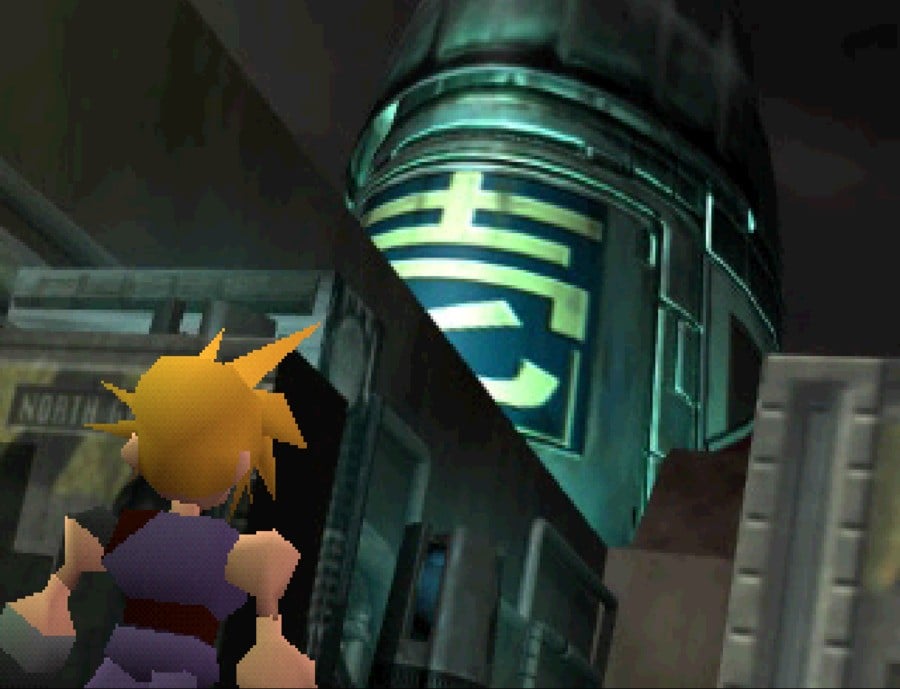
I don't think we'd literally localized the products at this point. And I think the reason why they wanted to do it, was because with Revolution Software, we'd got the translations for free [from Virgin]. So the territories were saying, 'Look what happens when you translate titles into foreign languages. You get better sales'. Unfortunately, they chose the right product, but at the wrong time. And I had never localized a product at that point.
I remember having to go and find a company to localize this game. You know, this was the early days of the Internet. I don't even know how I found this company, but there was a company. And they did localization. And I think they did localization for video games. So we went there, and we said, 'Oh, it's this massive game' And they handed over these files and they explained to me, 'Look, this stuff doesn't make any sense.' So then we had to get together and understand, 'Oh, there are these different systems', and how is this going to work? And, you know, the clock has started ticking. So we were already in the weeds before we realized, 'Hang on a minute, this is a lot more complicated than a Broken Sword.'
Time Extension: What kind of languages were you translating to?
Alltimes: I was in Germany and they wanted to do Spanish. I literally had the face of a man who was about to die. And I think my boss understood. And I think this was like three months in.
I'm saying, 'Look, America has had so many months more than us. We've got six months, and now you want me to do Spanish in three months.' I said, 'This is insane.' And then what happened was the shit hit the fan. I walked into the office, and someone was waiting for me. And I had to go and see the head of development at the time. And they explained, 'Square has come and said there's a big problem with the localization of Final Fantasy and we're gonna have to go to Japan and sort it out'.
And I said, 'Well, when are we going to Japan then?' He said, 'Tomorrow.' And I said, 'Well, you know, look, if this is technical, I don't understand the technical ins and outs, so we're gonna need someone from QA, and we're gonna need someone from the localization company.' So the QA guy was easy, because they work for us, right? But the other person looked at me like I was mad. I said, 'No, no, no, no, you don't understand. Someone is going to be on a plane with me tomorrow.' So we had to go to Japan.
Time Extension: And is that role on Final Fantasy VII how you got involved with games like Ghost in the Shell and Bushido Blade?
Alltimes: Yeah, so basically again, Sony Europe had an open-door policy. If anyone wanted to publish something, they'd look at it, and generally, if they thought it was at a level, they'd take it. So it doesn't just explain Bushido Blade, it explains Destrega, Cardinal Syn, Blood Lines, and Shadow Madness. It explains all those titles. Basically, we had an open door. And again, it took a long time to get the kind of momentum to establish ourselves and build the network that EA and other companies already had.
I would say, you know, it's only really when I'd been there like five years, and we were talking about the PlayStation 2, that I kind of understood what my job was and had enough experience to understand these are the things we're not going to do going forward. And that's how I signed Evolution Studios. That's how I signed Guerrilla Games — or Lost Boys as they were at the time. It was then that I understood what we did right and did wrong.
Time Extension: Can you tell us how you signed those companies? Both of those companies obviously went on to do a lot of work for Sony, so it would be great to hear more.
Alltimes: Yeah, I can. So basically for PlayStation 2, we were told [in 1998], I think, that we need to start looking at titles for that. We knew it was coming down the pipe, so we started to look for titles then. And I went to Ian Livingstone's house to ask for some advice about whether I should set up my own company. I'd become frustrated with the whole dynamic of Sony. We weren't really doing a lot of original titles. The development budget of external titles was a fraction of what the internal titles were spending.
So I went to him for advice, and he showed me this video for a real-time demo that was put together by Martin Kenwright's company Evolution. And that was the original demo for what eventually, after about 15 years, became DriveClub.
And I said, 'Wow, this is amazing. The only thing is we've got Gran Turismo. They're never going to green-light this. I'll tell you what. Rally games sell in Europe.' And again, there are so many racing games out there, and there are so many niches. 'Why don't we turn this into a rally game?' And what I did is I sold that idea internally and that's how Evolution got signed to do rally games. But I mean that technology was — they were really cutting edge in those days.
And then with Guerrilla Games, it's really funny. So these guys come in. Dutch guys and they've got like these three concepts. So there's like an isometric 2D game, you know, with fake manga, kind of Japanese, graphics. And then there was an isometric 3D point-and-click game. And then there was this document for a kind of Westworld kind of shooter. And none of them were floating my boat.
And they came in and I said, 'Look, you've pitched this isometric RPG. We've got Final Fantasy. Why would we sign that?' I said, 'You pitched a top-down point-and-click game and we're a console company. Why are you pitching that? We're not looking for that stuff.' And then I said, 'The other thing, I don't even know what that is. There's not even a demo.' Their faces all looked crestfallen and they said, 'Oh, we've got this demo.' And it was an oil rig demo. So they'd got government funding. They'd built the technology and they'd built a 3D engine. And this was the most detailed 3D graphics I'd ever seen at the time.
More importantly, it used Bezier patch rendering. Bezier patch rendering enables you to do organic surfaces. And one of the things you probably don't know is the original spec of PlayStation 2 is that it was going to feed through a dedicated Bezier patch rendering chip. And that would have enabled it to do really, really smooth organic surfaces. I got a guy in, one of our top tech guys, and he said, 'This stuff is first class.'
Time Extension: Yeah. Was Herman Hulst involved at that point?
Alltimes: No, he wasn't. It was Martin de Ronde. So he was the Biz Dev guy, and effectively, he was the CEO, I think. Because I don't remember ever meeting Herman once. Arjan was there, Jan-Bart was there, Michiel was there. All the top guys were there. And god that was painful because Playstation 2 was not easy to develop for.
But the reason why they got Killzone was because we didn't have a first-person shooter. So a bit like the rally game, I just said, 'Look, I know what we need internally.' Halo had just been announced. And we said, 'Well, we've got nothing to compete with that.' And we gave them a shot to do a demo. And they did this demo. It was absolutely stunning. It wasn't just technically brilliant, it was artistically brilliant, the audio was brilliant, and the ideas in it were brilliant. So that's how they got that job.
Time Extension: You ended up leaving Sony in 2001. Why did you decide to make that decision?
Alltimes: Yeah, so when you work in that bubble, and it's your first job in the game industry, everything inside that comfy castle is both a prison and a fortress. You know, it protects you, you have a safe job there, but you kind of didn't know what the world was like outside. And I was looking to just learn and have a different kind of experience. And also, I kind of was bored. I felt undervalued.
Again, we were only at the beginning of PlayStation 2, and there kind of seemed to be the same attitude towards external versus internal. So, at the same time I was working on Killzone and Evolution, they were doing The Getaway, which was an incredibly expensive product. I mean, I love that game, but, you know, I just thought, 'I've got to get out and see what the world's like outside.'
Since leaving Sony in 2001, Alltimes has gone on to work at companies like Eidos and Disney Interactive Studios, before eventually starting his own development studio The Imaginati Studio in 2015. The company is perhaps best known for developing 2017's Planet of the Apes: Last Frontier — a choice-based narrative adventure game that was released across PS4, Xbox One, and PC.

